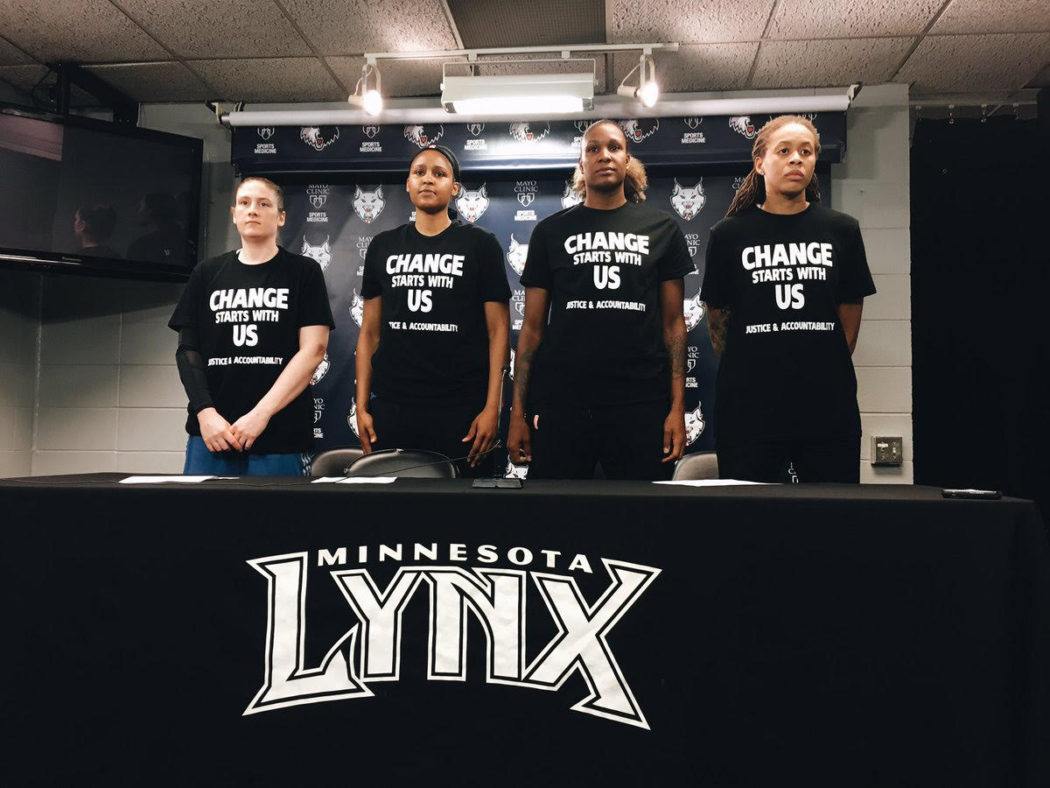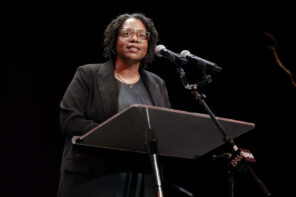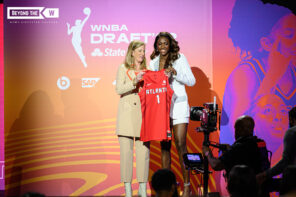Over the past few months, we have seen that four-time WNBA champion – the Minnesota Lynx’s Maya Moore – is hoping to be as much of a champion for social justice as she is on the basketball court.
Moore has particularly taken a stance for prosecutorial and criminal justice reform, which was profiled by Jerry Stackhouse for The Players’ Tribune involving the case of a Missouri man named Jonathan Irons.
She spoke with ESPN’s Jemele Hill for a State of the Black Athlete piece at The Undefeated which not only touched on being an athlete and an activist at the same time, but also how some do not consider her an all-time great athlete simply because she is a woman.
Our society is still catching up to valuing what we do as females on the athletic field in a way that has as much respect and visibility as what the men have been doing for years. You think about Magic Johnson and Larry Bird and some of those pioneers that are allowing LeBron and Steph and Kevin to do the things they’re doing now. So I’m not really ashamed of where I’m at in the history of women’s sports. Years from now, another young woman in my position doing what I’m doing is going to get that type of attention and respect.
–Maya Moore
Hill also asked Moore about the summer of 2016 when WNBA players across the board stood up and spoke out on the issue of police brutality. It especially hit home for the city and state Moore plays basketball in given the police shootings of Philando Castile and Alton Sterling.
Among the Lynx players who stood up – was Lindsay Whalen. Hill asked Moore how is it that in the WNBA, social activism is something that is embraced across the board regardless of if an athlete is black or white.
I think there’s a pioneering, fighting kind of spirit in the female athlete because, you know, we haven’t been raised on ‘All I have to do is play my sport and I’m going to have everything I want.’ We’ve had to do extra and go above and beyond.
I think the heart of the female athlete is so huge.
She also believes that a renewed sense of activism among athletes has much to do with athletes nowadays having more exposure and bigger platforms than those previously. Moore also understands that in a male-dominant society, she will get attacked for being a woman and for being Black.
And the more you see a young black girl get an opportunity, you can see neighborhoods change when you equip and empower young black women.
We have this uncomfortable tension with strength and vulnerability. And we shouldn’t bash or shame women or women of color for talking about their struggles and weaknesses. Because that’s being real. That’s being human.
Moore was also asked about how some may take offense to the fact she is using her platform to be an agent of change. She told Hill that she really has not heard much of the “stick to sports” bellowing that Hill herself heard much of last year in response to her “controversial” tweets.
Surprisingly, and I don’t know if it’s just me because I don’t listen to a lot of people [laughs] outside of the people I’m intentionally trying to be around, but I’ve heard more and more people say, ‘Maya, thank you. You’re giving us a voice. Like, we need this more.’
The piece closed with Moore saying she wants to simply use every opportunity she can to affect change and impact lives – and how being coached by Geno Auriemma at UConn and Cheryl Reeve with the Lynx have been major factors on setting her on this path.
You need people to give you beautiful visions to run after. I get opportunities because of my platform to paint visions of, ‘This is how good we can be.’ That’s really what’s exciting me now and is going to last throughout my career.
The full story will also appear in ESPN The Magazine’s State of the Black Athlete issue which will hit newsstands on Feb. 5 to commence Black History Month.





